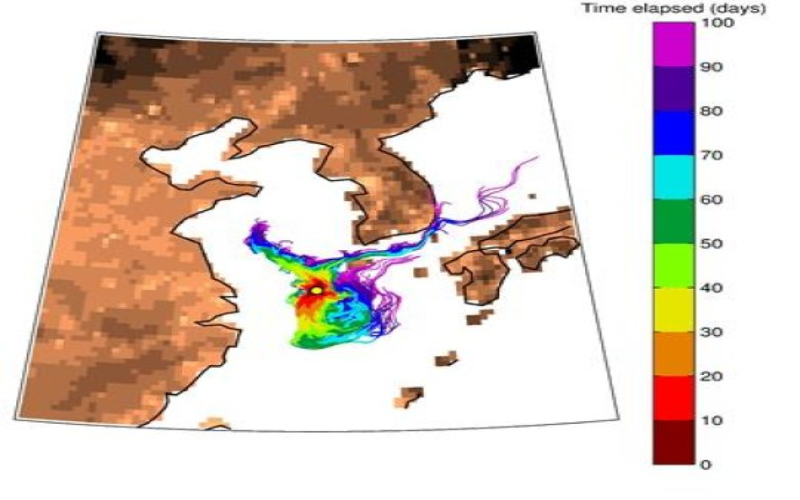11 Dec 2024

Tired Earth
By The Editorial Board

Water contaminated by the oil currently leaking into the ocean from the Sanchi tanker collision is likely to take at least three months to reach land, and if it does the Korean coast is the most likely location. However, the oil's fate is highly uncertain, as it may burn, evaporate, or mix into the surface ocean and contaminate the environment for an extended duration.
This is according to emergency ocean model simulations run by scientists at the National Oceanography Centre (NOC) and The University of Southampton to assess the potential impact of local ocean circulation on the spread of pollutants. These simulations were run using the leading-edge, high-resolution global ocean circulation model, NEMO.
The Sanchi tanker collision occurred on the border between the Yellow and East China seas, an area with complex, strong and highly variable surface currents.
Leading this research, Dr Katya Popova, from the National Oceanography Centre, said "Oil spills can have a devastating effect on the marine environment and on coastal communities. Strong ocean currents mean that, once released into the ocean, an oil spill can relatively rapidly spread over large distances. So understanding ocean currents and the timescale on which they transport ocean pollutants is critical during any maritime accidents, especially ones involving oil leaks."
The team of scientists involved in this study 'dropped' virtual oil particles into the NEMO ocean model and tracked where they ended up over a three month period. Simulations were run for a series of scenarios of ocean circulation typical for the area the oil spill is thought to have occurred in, and for this time of year. This allowed the scientists to produce a map of the potential extent of the oil spill, showing the risk of oil pollutants reaching a particular part of the ocean.
However, Stephen Kelly, the University of Southampton PhD student who ran the model simulations, said "There was a high level of variation between different scenarios, depending on a number of factors. Primarily the location of the original oil spill and the way in which atmospheric conditions were affecting ocean circulation at that time."
NOC scientist, Dr Andrew Yool, who collaborated in this study, discussed how the approach used during these model simulations could help optimise future search and recovery operations at sea by rapidly modelling oil spills in real-time. "By using pre-existing ocean model output we can estimate which areas could potentially be affected over weekly to monthly timescales, and quickly at low computing cost. This approach complements traditional forecast simulations, which are very accurate for a short period of time but lose their reliability on timescales that are required to understand the fate of the spill on the scale from days to weeks."
The NEMO ocean model is supported by UK National Capability funding from the Natural Environment Research Council (NERC). This model is widely used by both UK and international groups for research into ocean circulation, climate and marine ecosystems, and operationally as part of the UK Met Office's weather forecasting.
Source : www.sciencedaily.com
Comment